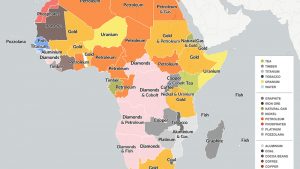 The World Bank Group’s latest Doing Business 2018: Reforming to Create Jobs report ranks New Zealand, Singapore and Denmark in first, second and third spots, respectively, followed by the Republic of Korea; Hong Kong SAR, China; United States; United Kingdom; Norway; Georgia; and Sweden.
The World Bank Group’s latest Doing Business 2018: Reforming to Create Jobs report ranks New Zealand, Singapore and Denmark in first, second and third spots, respectively, followed by the Republic of Korea; Hong Kong SAR, China; United States; United Kingdom; Norway; Georgia; and Sweden.
Mauritius, in 25th place is the highest ranked economy in Sub-Saharan Africa.
On Africa it revealed the following: Nigeria, Malawi and Zambia were among this year’s top 10 improvers, based on reforms undertaken. For the first time, the group of top 10 improvers includes economies of all income levels and sizes, with half being top improvers for the first time – El Salvador, India, Malawi, Nigeria, and Thailand.
Since its inception, Doing Business has recorded business reforms in 186 of the 190 economies it now monitors. Rwanda has implemented the highest number of business reforms over the past 15 years, with a total of 52 reforms, followed by Georgia, which advanced this year into the top 10 ranked economies (47 reforms) and Kazakhstan and the Former Yugoslav Republic of Macedonia (41 reforms each).
Fact Sheet: Sub-Saharan Africa
What are the ranking trends?
- Mauritius, in 25th place in the Doing Business rankings, is the highest ranked economy in Sub-Saharan Africa. Other economies in the region that perform well on the ease of doing business rankings are Rwanda (at 41), Kenya (80), Botswana (81) and South Africa (82).
- The region’s lowest ranked economies are Somalia (190), Eritrea (189), South Sudan (187), and the Central African Republic (184).
- Other large economies in the region and their rankings are Democratic Republic of Congo (182), Ethiopia (161), Nigeria (145), Tanzania (137), Sudan (170), and Uganda (122).
- Rwanda ranks among the best globally in the Doing Business areas of Registering Property (with a rank of 2) and Getting Credit (6). In registering property, Rwanda has an efficient land registry where it takes 7 days to transfer property and costs only 0.1% of the property value, the same as in New Zealand.
- Mauritius has among the least cumbersome business regulations in two Doing Business areas: Dealing with Construction Permits (with a rank of 9) and Paying Taxes (10).
- Four economies in Sub-Saharan Africa rank in the top 10 in Getting Credit (with an average rank of 115). Zambia ranks 2, just after New Zealand, and Rwanda, Malawi and Nigeria all rank 6.
- The region underperforms in the areas of Getting Electricity (with an average rank of 148), Trading Across Borders (137), and Registering Property (131). It takes an average of 115 days to obtain a permanent electricity connection to the grid in Sub-Saharan Africa, compared to the global average of 92 days.
What are the reform trends?
- A record number of 83 reforms, making it easier to do business, were implemented in 36 of 48 economies in Sub-Saharan Africa in the past year. This is the largest number of reforms ever recorded by the Doing Businessreport in any region, and represents 31 percent of all reforms implemented globally in in the past year.
- With Malawi, Nigeria and Zambia, Sub-Saharan Africa is the most represented region among the global top 10 improvers in the Doing Business 2018
- Multiple economies in the region implemented three or more reforms in the past year, including Kenya (6 reforms), Mauritania, Nigeria, Rwanda, and Senegal (5 reforms each), Malawi, Mauritius and Niger (4 reforms each), and Angola, Benin, Cabo Verde and Zambia (3 reforms each).
- Sub-Saharan Africa accounted for 14 of the 22 reforms globally in Dealing with Construction Permits. Many economies, including Benin, Cabo Verde, Democratic Republic of Congo, Gabon, Ghana, Guinea, Niger, Nigeria and the Seychelles made dealing with construction permits easier by publishing regulations related to construction online.
What are the highlights of the past 15 years?
- Since the start of Doing Business, the region carried out a total of 798 reforms.
- Rwanda has implemented the most reforms in the past 15 years, totaling 52, followed by Kenya (32) and Mauritius (31).
- Starting a Business, with 163 reforms, was the leading indicator for regional reforms, followed by Getting Credit and Trading across Borders with 112 and 108 reforms respectively.
- the average number of days to start a business in the region has dropped to 22.5 days from 61 days in 2003.
Doing Business database, World Bank, CNBC Africa and African Eye Report
Note: The rankings are based on the average of each economy’s distance to frontier scores for the 10 topics included in this year’s aggregate ranking. This measure shows how close each economy is to global best practices in business regulation. A higher score indicates a more efficient business environment and stronger legal institutions.




